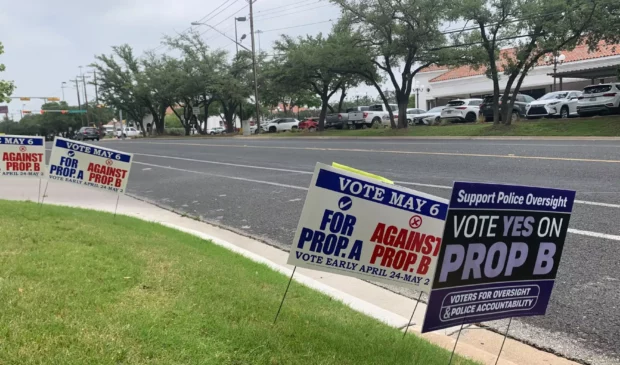Proposition A, which would expand oversight, cruised to victory Saturday: 70 percent of voters supported the measure, according to unofficial voting numbers.
Proposition B, which would curtail citizen oversight, was voted down by 80 percent of voters.
Equity Action’s Prop A would give the citizen-led Office of Police Oversight more access to investigations and expand its role in fielding complaints and disciplinary decision-making.
VOPA’s Prop B would limit the office in investigations and its ability to field anonymous complaints. Prop B’s supporters say the oversight structure in Prop A is too expansive and, if implemented, would open the city up to a lawsuit.
The union stepped back from the negotiating table earlier this year after Austin balked on a four-year labor contract.
When it became clear Prop A passed and Prop B failed, Austin Mayor Kirk Watson addressed the tough road ahead on negotiating a long-term contract.
“This deeply felt conversation about public safety and policing in our community has raised a lot of challenging questions and absolutely no easy answers,” he said. “But we’ll keep talking in the hope of finding some common-sense solutions that serve all our community.”
Watson pointed out a bill in the Texas Legislature could invalidate the provisions in Prop A. He also noted some provisions within the measure – namely, expanded access to officers’ personnel files – could be a non-starter for the police union.
The police union said as much Saturday night, tweeting that the structure under Prop A was “illegal” and calling its supporters “anti-police activists.”
“The Austin Police Association is aware of the election results and is taking immediate action to determine the city’s intentions regarding the implementation and enforcement of the illegal provisions contained in Prop A,” it said. “The APA simply will not stand by while this city and anti-police activists operate with blatant disregard for state law.”
Just over 10 percent of voters within Austin city limits cast a ballot. That anemic turnout is typical of May elections, meaning just a sliver of the electorate decided the fate of the Office of Police Oversight.









